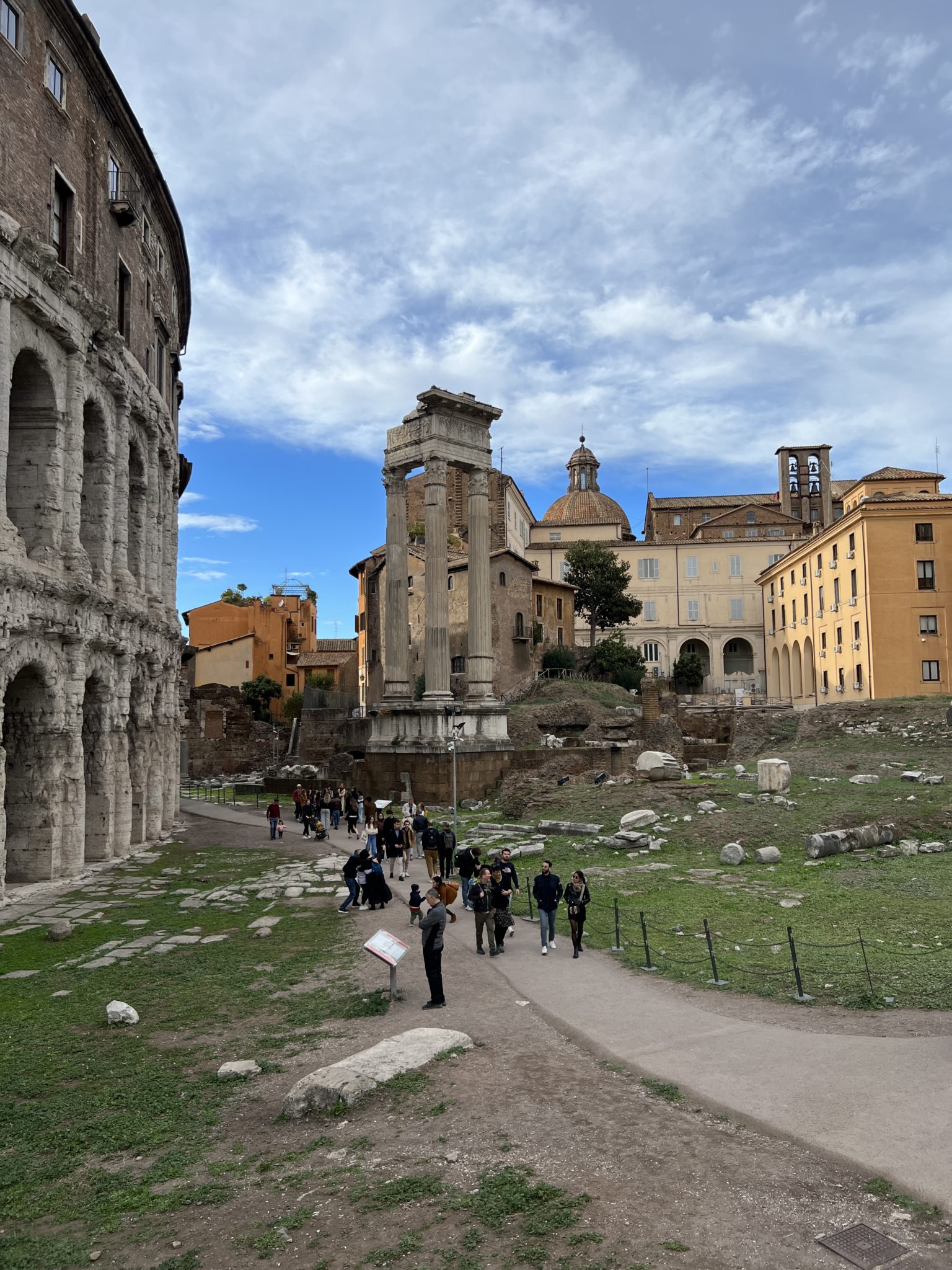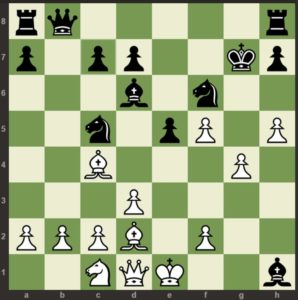

NB: I’ll hold comments with solutions ’till the next day so there won’t be “spoilers” for others.
Please remember me when shopping online. Thanks in advance. When you are ready to shop, come back and click one of these links, then Amazon will remember that you entered with my affiliate link. By the way, I can’t control what you might initially see when you get there. Alas.
3:16 isn’t just in John.
Welcome new registrants!
conqueringlyons




































White to move …?
1. Bh6+ Kxh6
2. Qd2+ Kg7
3. Qg5+ Kf8
4. Qxf6+ Ke8
5. Qxh8+ Ke7
From here I would probably exchange queens to start leveraging the material advantage.
Adam, yes, white to move. Sorry about not including that. However, you will see from the set up and the orientation of the board (a,b,c, etc.), that you are seeing the board from white’s perspective. In modern puzzles that is a clue as to whose move it is.
Today’s image almost immediately put in mind Jacopo Sannazaro’s poem on the Ruins of Cumae.
“Tot decora, artificiumque manus, tot nota sepulcra,
Totque pios cineres una ruina premit”
He goes on at length, but I think those lines provide a fair summary of the mood. Then comes a truly good reflection on the mortality of men and their cities:
“Et querimur, cito si nostrae data tempora vitae
Diffugiunt? Urbes mors violentia rapit.
Atque utinam mea me fallant oracula vatem,
Vanus et a longa posteritate ferar.
Nec tu semper eris, quae septem amplecteris arces:
Nec tu, quae mediis aemula surgis aquis.
Et te (quis putet hoc?) Altrix mea, durus arator
Vertet; et, “urbs,” dicet, “haec quoque clara fuit.”
Fata trahunt homines: fatis urgentibus, urbes,
Et quodcumque vides, aufert ipsa dies.”
I like the oblique references to Rome (quae septem amplecteris arces), Venice (quae mediis surgis aquis), and his homeland (altrix mea) of Naples. Our poet’s prophetic offices, however, have failed him in this one sense: in place of the “durus arator,” the viewer is more often than not a deeply unreflective tourist, which adds a unique layer of existentialist horror, I think.
Still, a good reflection on the transitory nature of our seemingly deathless civilization.
Okay, then h5-h6+
Kf8 (only possible move).
g4-g5 Ne8
Qh5
Black can block with Ke6 but it’s only a temporary reprieve.
I’m guessing I’ve missed something though in my cunning plan.
Cavalier: Great snip from that poem. And thanks for that return trip – for me – to Cumae. In another age of this world, before I had converted and entered the Church, I stayed at Cumae for a week or so in a great villa which was a study center for archeology and ancient history.
My room overlooked the ancient Cumaen amphitheater. From this location we struck out on glorious day trips. I have fotos from the epoch, but they are in storage.
Ah those days… et in arcadia ego.
1. h6+ Kf8
2. g4-g5 Ne8 (if Qe8 then… 3. g5xN Qd8… 4. Bh6+ Ke7…with Qd4 looming!)
3. Qh5 looming.
My mug reads:
If Fat is Flavor,
I’M DELICIOUS!!!